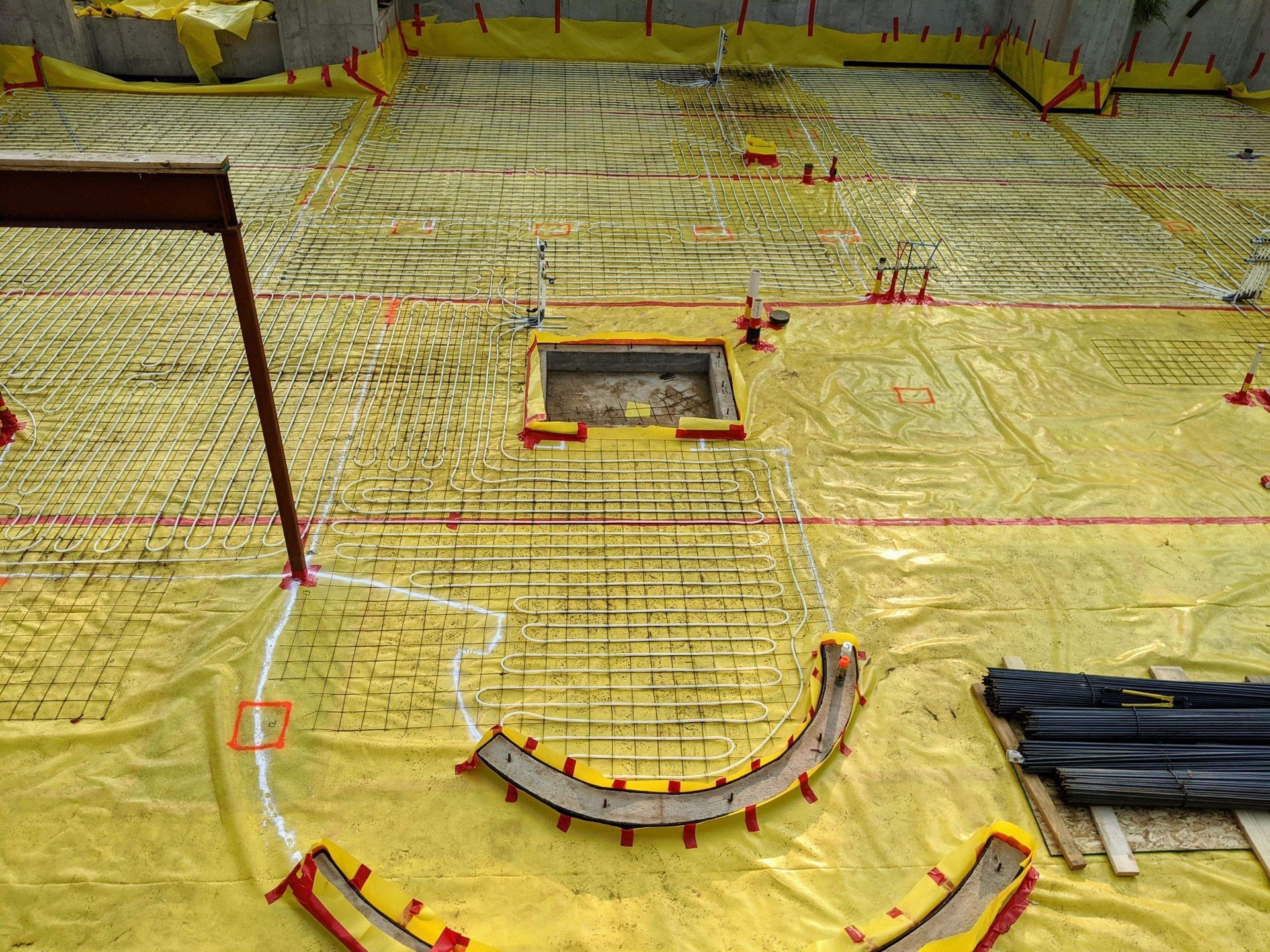Radiant floor heating in Denver
Radiant floors create warmth that starts underfoot and spreads evenly through each room. Advanced Hydronics designs systems tailored to your home’s structure, flooring, and lifestyle for quiet, draft-free comfort that feels natural in Denver’s changing seasons.
Warm floors that change how rooms feel

Hydronic radiant systems circulate warm water through durable tubing embedded in or beneath the floor. The heat rises gently through the surface, warming people and objects directly instead of blowing air. This approach delivers even temperatures, silent operation, and efficiency that pairs seamlessly with high-performance boilers or heat pumps.
Unsurpassed Comfort
Radiant floors heat from the ground up, eliminating cold spots and temperature swings. Each room maintains steady warmth without noisy fans or uneven airflow. The result is an environment that feels calm, balanced, and naturally comfortable, even on the coldest mornings.
Inconspicuous
Installed beneath your finished flooring, radiant heat stays completely hidden and silent. With no vents, baseboards, or grilles, you have total design freedom for furniture placement and aesthetics. It’s an ideal choice for open layouts, spa baths, and spaces where clean architecture takes priority.
Hypoallergenic
Because radiant heating doesn’t rely on air movement, it keeps dust, pollen, and pet dander from circulating through the home. Floors dry quickly after showers or snow tracked inside, helping maintain clean, comfortable conditions in high-traffic and moisture-prone areas.
Easily Zoned
Radiant systems naturally divide into zones that can be controlled independently. Each space can have its own temperature—cooler bedrooms, warmer bathrooms, or balanced living areas—managed by simple thermostats or smart home controls. This flexibility delivers comfort tailored to the way you live.
Reduced Energy Use
Radiant floors operate efficiently at lower water temperatures, maintaining comfort while reducing fuel consumption. When paired with a condensing boiler or heat pump, they deliver exceptional performance and lower utility bills. Even heat distribution also prevents overcorrection and cycling losses common in forced-air systems.
Why Many Choose Hydronics
Water moves heat quietly and efficiently which is why many Denver homeowners compare radiant to forced air before a remodel or new build. If you want a deeper overview of benefits and system types, read why choose hydronics for a plain language guide.
Benefits of radiant floor heating
- Even temperatures from wall to wall
- Quieter rooms with no fan noise
- Cleaner indoor air with less dust movement
- Design flexibility with hidden emitters
- Lower water temperatures that improve efficiency
Common Questions About Radiant Floor Heating
Can radiant floors heat my whole home?
Yes. Properly designed radiant systems can serve as the primary heat source for most Front Range homes. We size tubing, spacing, and water temperature for each room so comfort stays even from basement to main level.
Will radiant heat work under hardwood or luxury vinyl?
Yes. We select floor assemblies and water temperatures that protect hardwood and maintain consistent warmth. Many engineered woods, tile, and stone surfaces perform exceptionally well with radiant heat when installed correctly.
How thick does the floor need to be for radiant heating?
It depends on the installation method. New construction often uses in-slab or overpour assemblies, while remodels may use low-profile plates under existing floors. We match the system to your structure so finished heights and materials align cleanly.
Does radiant heat make floors hot to the touch?
No. Radiant systems are designed for comfort, not overheating. Floors typically stay between 75°F and 85°F, warm enough to eliminate chill but never uncomfortable underfoot.
Can I add radiant floors to part of my home?
Absolutely. Many homeowners start with kitchens, bathrooms, or basements and expand later. We design each zone so additional spaces can be added without disrupting the rest of the system.
Do radiant systems require special maintenance?
Very little. Annual service checks on the boiler, pumps, and water quality keep performance steady. Tubing and manifolds are long-lived, with minimal upkeep once properly commissioned.
How long does a radiant floor last?
The tubing itself can last 30 to 50 years or more when installed and maintained correctly. Modern materials and oxygen-barrier designs ensure reliability for decades of quiet, efficient comfort.
